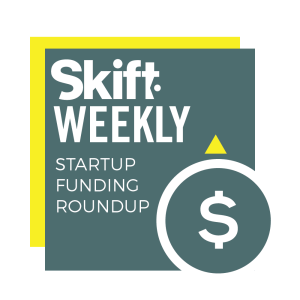Turo Raises $30 Million More for Rental Car Bookings: Travel Startup Funding This Week

Skift Take

Travel Startup Funding This Week
Each week we round up travel startups that have recently received or announced funding. Please email Travel Tech Reporter Justin Dawes at jd@skift.com if you have funding news.This week, travel startups announced more than $57 million in funding.
>>Turo, an online rental car marketplace, has raised $30 million in an extension to its Series E round, leading to a total Series E round size of $280 million.
Allen & Company LLC, Larry Fitzgerald, and 2 Chainz joined the latest investment in the San Francisco-based company, which offers peer-to-peer car-sharing.
>>H2O, a vacation rental management startup, has raised $7 million in a Series B round.
Samsung Ventures participated in the round.
"We're pleased to be part of the fastest-growing hospitality company in Japan," said Eric Kim, senior investment manager at Samsung Ventures. The startup has raised a total of $18 million since its founding in 2015.
Vacation rentals use the startup's services to help manage about 5,000 rooms. Property management services include housekeeping and digital services include helping owners manage how rates and inventory are distributed to about 25 online travel agencies. The startup also runs a real estate development business under the H2O brand.
>>Gtriip, a digital identity solution service, has secured an undisclosed amount of Series B investment. The company enables guests to check in at their hotels through a mobile app.
Gtriip previously raised approximately $1 million in its Series A funding. The startup, created in 2014, said it has installed its service to cover more than 13,000 rooms and access points in Asia Pacific. Its customers include the Park Hotel Group and the Amara Hotel Group.
>>Beekeeper, an operational communications platform for hourly workers, has had an extension to its Series B funding round of $45 million in September that has added $5 million to the round.
Energize Ventures provided the fresh investment.
The Zurich-based startup has now raised more than $76 million to date. Many hotel managers use Beekeeper to communicate with frontline non-desk workers via a mobile app. See Skift's profile of Beekeeper.
>>Immfly, a provider of in-flight entertainment systems, has received an undisclosed strategic investment from Boeing HorizonX, the venture arm of the aerospace giant.
The Barcelona-based startup has moved beyond merely offering hardware for streaming video entertainment and now also offers advertisement services and upselling tools as well as consulting services to airlines.
In 2016, Immfly raised approximately $2.6 million in seed funding
>>Wishbox, a company whose tool helps hotels, hostels, and short-term rentals engage digitally with guests, has raised $2.5 million in seed funding.
BNF Capital led the round. Wishbox, founded in 2016, has previously raised $1 million.
The Tel Aviv-based Wishbox said that "tens of thousands of active properties" use its system to handle check-ins and check-outs, offer online reviews, and try to upsell guests on add-on services like luggage storage. Last year, it handled more than a half-million "pre-check-ins" and check-outs, the company said.
>>NannyBag, a luggage storage network, has raised about $2.2 million (€2 million) in funding.
Expon Capital and Fa Diese participated in the round. The Parisian startup hasn't disclosed its prior funding.
NannyBag says it has more than 4,000 partner hotels in a few hundred cities offering space for luggage storage for non-guests. Other startups in this segment include, BagBnb, which last month raised about $2.8 million (€2.5 million) in seed funding, Bounce, LuggageHero, Lugless, and Vertoe.
Skift Cheat Sheet:
We define a startup as a company formed to test and build a repeatable and scalable business model. Few companies meet that definition. The rare ones that do often attract venture capital. Their funding rounds come in waves.
Seed capital is money used to start a business, often led by angel investors and friends or family.
Series A financing is typically drawn from venture capitalists. The round aims to help a startup's founders make sure that their product is something that customers truly want to buy.
Series B financing is mainly about venture capitalist firms helping a company grow faster. These fundraising rounds can assist in recruiting skilled workers and developing cost-effective marketing.
Series C financing is ordinarily about helping a company expand, such as through acquisitions. In addition to VCs, hedge funds, investment banks, and private equity firms often participate.
Series D, E and beyond These mainly mature businesses and the funding round may help a company prepare to go public or be acquired. A variety of types of private investors might participate.





